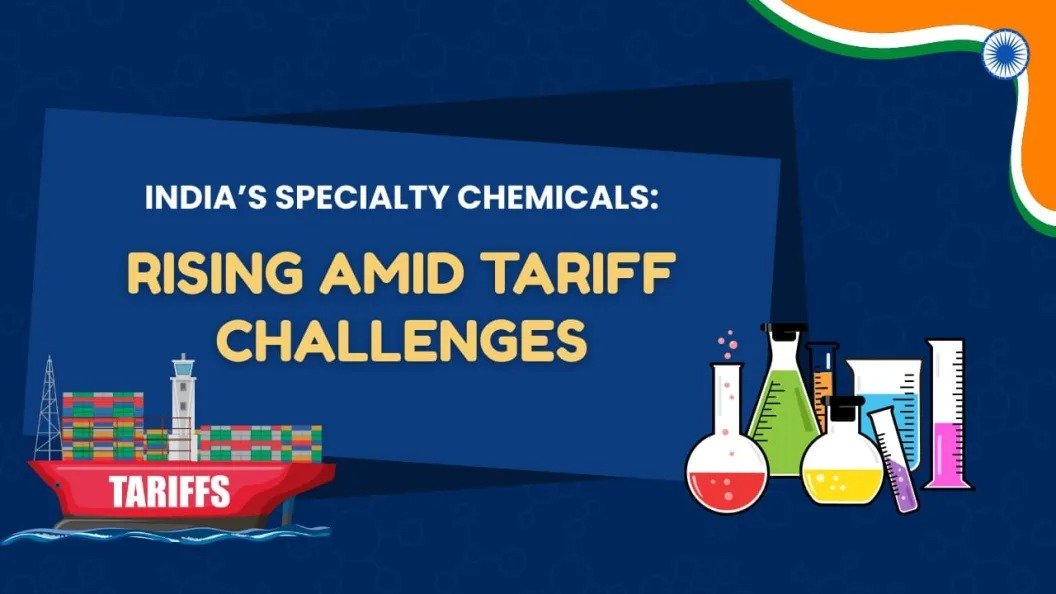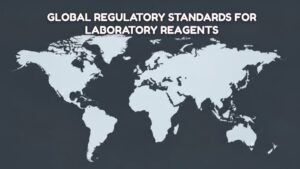India’s specialty chemical sector is emerging as a global growth driver, fueled by robust domestic demand, competitive manufacturing capabilities, and increasing exports. However, in an interconnected world economy, policies such as reciprocal tariffs, where countries impose equivalent trade duties on each other, are reshaping global trade flows and influencing market dynamics.
For Indian specialty chemical manufacturers, reciprocal tariffs present both challenges and opportunities. While they can disrupt existing supply chains and increase costs, they also open doors for domestic producers to strengthen their market share and global positioning.
In this article, we’ll explore the current state of India’s specialty chemical industry, the impact of reciprocal tariffs, the challenges they bring, and the strategies to turn these challenges into growth opportunities.
1. Understanding India’s Specialty Chemical Sector
Specialty chemicals are performance-driven products used in various industries, including agriculture, automotive, textiles, personal care, water treatment, coatings, adhesives, and construction. Unlike commodity chemicals, their value comes from unique formulations, innovative processes, and targeted applications.
India’s specialty chemical sector is expected to grow at a CAGR of 10-12% over the next five years, supported by:
- Robust domestic demand in manufacturing and consumer goods.
- Shifting global supply chains away from China, creating export opportunities for Indian players.
- Government incentives under schemes like PLI (Production-Linked Incentive) and “Make in India.”
2. The Era of Reciprocal Tariffs – What Does It Mean?
Reciprocal tariffs are a trade policy measure where countries impose equal or equivalent duties on imports from nations that levy similar tariffs on their exports. This policy aims to create a level playing field in global trade negotiations.
For the specialty chemical industry, these tariffs can:
- Increase import costs for raw materials and intermediates.
- Change sourcing strategies, leading companies to look for alternative suppliers.
- Impact export competitiveness if other countries retaliate with equal tariffs.
3. Challenges Facing India’s Specialty Chemical Industry
a) Increased Raw Material Costs
A significant portion of raw materials used in specialty chemical production is imported, especially from countries like China, Japan, and Germany. Reciprocal tariffs can raise input costs, squeezing profit margins.
b) Disruption in Global Supply Chains
Trade restrictions often force companies to find new supply partners, which may result in delays, inconsistent quality, or higher prices.
c) Export Market Uncertainty
If target export markets respond with tariffs, Indian specialty chemical exporters may face reduced competitiveness, particularly in price-sensitive segments.
d) Compliance and Regulatory Pressure
Navigating varying compliance standards and regulatory frameworks in different countries adds complexity and costs for exporters.
e) R&D and Innovation Challenges
Rising production costs could reduce the budgets available for research, development, and innovation, potentially slowing product diversification and competitiveness.
4. Opportunities Emerging from Reciprocal Tariffs
While the challenges are significant, reciprocal tariffs also create opportunities for domestic players to gain market share and reduce dependency on imports.
a) Boost to Domestic Manufacturing
Higher import costs can encourage local manufacturing of raw materials, intermediates, and end products, strengthening India’s self-reliance in the chemical value chain.
b) Expansion into New Export Markets
With global buyers seeking to diversify supply chains away from over-reliance on certain countries, Indian specialty chemical companies can position themselves as reliable partners.
c) Strategic Collaborations
Joint ventures, technical collaborations, and technology transfers can help Indian companies enhance product quality, reduce costs, and meet global standards.
d) Value-Added Offerings
By focusing on high-margin, customized solutions rather than competing solely on price, Indian manufacturers can differentiate themselves in the global market.
5. Strategic Recommendations for Gaining an Edge
To navigate the era of reciprocal tariffs successfully, Indian specialty chemical companies need a multi-pronged strategy:
1. Localize Supply Chains
- Invest in domestic raw material production to reduce import dependency.
- Partner with Indian suppliers to secure consistent and quality inputs.
2. Focus on R&D and Innovation
- Develop cost-effective formulations that require fewer imported components.
- Innovate in green chemistry and sustainable manufacturing to meet global demand for eco-friendly solutions.
3. Diversify Export Markets
- Reduce over-reliance on a single country or region.
- Target emerging markets in Southeast Asia, Africa, and Latin America, where trade barriers may be lower.
4. Build Strategic Partnerships
- Collaborate with global companies for technology upgrades and market access.
- Form industry alliances to lobby for favorable trade agreements.
5. Invest in Sustainability
- Adopt circular economy practices and waste reduction techniques.
- Use renewable energy and eco-friendly processes to align with global sustainability goals.
6. Case Example: Specialty Chemicals in Tariff-Impacted Markets
Consider a hypothetical Indian specialty chemical producer that relies heavily on importing a key raw material from a country imposing tariffs on Indian exports. With reciprocal tariffs in place, the company faces a 15% increase in raw material costs.
By investing in domestic raw material synthesis and leveraging government incentives for local manufacturing, the company could:
- Reduce reliance on imports.
- Maintain competitive pricing for exports.
- Market itself as a sustainable, self-reliant supplier is an attractive proposition for global buyers seeking resilient supply chains.
7. Role of Government and Policy Support
The Indian government plays a crucial role in helping the industry adapt:
- Encouraging domestic production through PLI schemes and tax incentives.
- Negotiating favorable trade agreements to reduce tariff impacts.
- Investing in infrastructure to support manufacturing and exports.
- Enhancing skill development programs for a future-ready workforce.
8. The Road Ahead
Reciprocal tariffs are becoming a permanent feature of global trade. While they pose significant short-term disruptions, Indian specialty chemical companies that adapt quickly can secure long-term competitive advantages.
Key to success will be:
- Reducing import dependency.
- Strengthening domestic manufacturing.
- Innovating for global markets.
- Building resilient and diversified supply chains.
Conclusion
The era of reciprocal tariffs is reshaping the competitive landscape for India’s specialty chemical industry. While the challenges are real, ranging from higher raw material costs to export uncertainties, the opportunities are equally compelling.
By adopting strategic localization, innovation, market diversification, and sustainability, Indian specialty chemical players can not only survive but thrive, positioning themselves as leaders in the global specialty chemical value chain.
For companies willing to embrace change, this period could mark the beginning of a new era of growth and global recognition for India’s specialty chemical sector.








